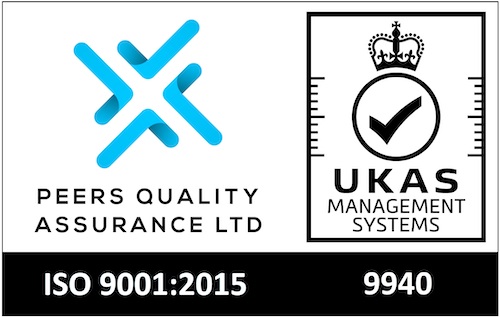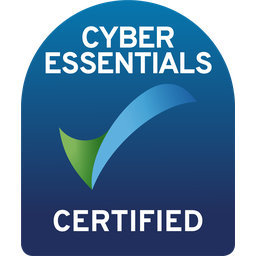Right to Work check online
Right to Work Checks are essential for recruitment as they verify if a potential employee is eligible to work in the UK. Every employer in the UK is legally required to do this before onboarding potential applicants to ensure that they are allowed to work in a role. You can now perform these checks online using our platform. Failure to carry out these legally mandated checks may incur a fine from the Home Office.
Who needs a Right to Work Check?
The short answer is that everyone employed in the UK is required by law to undertake a Right to Work check.
The Right to Work system was put in place to check a job applicant’s Right to Work in the UK, however it also reviews their immigration status and ensures that illegal migrants are not employed unlawfully.
The Right to Work check is the employer’s responsibility. At MyVetting.com, we know that employers of all sizes and HR departments are busy places, so we’ve developed an online Right to Work check that’s simple to use and affordable but robust and Home Office-compliant.
What is a Right to Work Check?
A Right to Work Check is integral to the recruitment process for all jobs and positions in the UK. It is the responsibility of the employer to run a Right to Work check on any potential employee, ensuring that your applicant is eligible for employment in the United Kingdom.
In the past, this has typically required an in-person meeting where the relevant documentation is produced by the applicant for employment, then checked, copied and stored according to regulations by the potential employer.
Digital technology has enabled this process to take place online, with a few clicks. You can check Right to Work online with MyVetting.com. Digital Right to Work checks are just as stringent and compliant as traditional checks but digital checks, like Myvetting.com checks, can be sent straight to your applicants’ mobile devices for them to complete in seconds.


What’s Included in our Right to Work Check?
Each and every MyVetting.com Right to Work Check includes, as standard:
For Non-UK, Non-Republic of Ireland Passports, we will also need to see and process your sharecode
What Do Online Right to Work Checks mean for Employers?
Before IDVT technology made it possible to conduct Right to Work checks online, employers were directly responsible for assessing the relevant paperwork to establish if an applicant for employment had the right to work in the UK and, if they did, if the right to work was permanent or time-limited.
With MyVetting.com online Right to Work checks, the checks are carried out online, with a secure process guaranteed.


How MyVetting.com works
There’s no cost to register with MyVetting.com. In fact, we’ve worked hard to ensure you can access our platform in as few clicks as possible.
When you register, you can buy Right to Work checks straightaway through the secure Stripe payment gateway. You can buy one single check or thousands of checks in one transaction. You can also send the checks that you’ve bought straightaway or send them as you need them, over a 12-month period.
Once you’ve purchased your checks, you’ll arrive on your Client Dashboard where you can digitally send check requests to your applicants in one click and then review the progress of the checks from your dashboard. If you need to top up the number of checks you have, you can buy further checks in the click of a button.
As well as Right to Work checks, we also offer online DBS checks and digital Right to Rent checks.
Why use MyVetting.com for Right to Work Checks?
- Control Your Checks – Send, manage and buy checks from one central client dashboard
- Reduce HR Vetting Spend – Our affordable checks are carried out to robust Home Office standards. Our online checks mean that we can drastically reduce the resource required to complete checks and we’re passing that saving on to you.
- Secure Processes – From GDPR and a secure payment gateway to Home Office IDVT technology, MyVetting.com is secure, efficient and robust.
- Customer Service – Our platform is as easy to use as 1, 2, 3 – but we still have screening experts on hand to help you when you need it.
How long do Right to Work Checks take?
Depending on your applicants’ nationality, we could return a Right to Work check within moments. For international passports, it may take up to 24 hours. Our systems have been developed to handle a high number of checks at high speed at affordable costs – but we won’t ever compromise on the security and robustness of our checks.
What documents do I need for Right to Work checks?
Whether you’re a client helping your applicant through the process or if you need to upload your documents to complete a Right to Work check, these are the documents that the Home Office will accept to prove a Right to Work in the UK.
The Home Office is responsible for setting out the documents that can be used to prove the right to work. They are called List A and B and name all eligible documents. Documents not included on this list will not be accepted as proof of right to work.

Proof of Right to Work in the UK Documents
List A and List B
- List A sets out documents that can be used by job applicants with a permanent right to work.
- List B sets out documents that can be used by job applicants with a temporary right to work.
What if I have an Expired Passport?
Expired passports are still accepted as documentary evidence for Right to Work checks. If you do not have a passport, you may submit a Birth Certificate as evidence of the Right to Work. A Birth Certificate has no expiry date.
What will Right to Work results show?
The report will determine if your applicant has passed or failed the UK Right to Work check.





